#atticus ross
Text
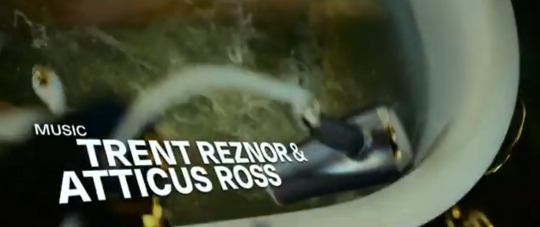
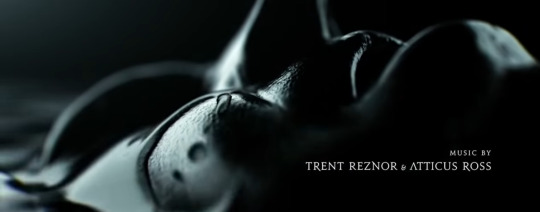
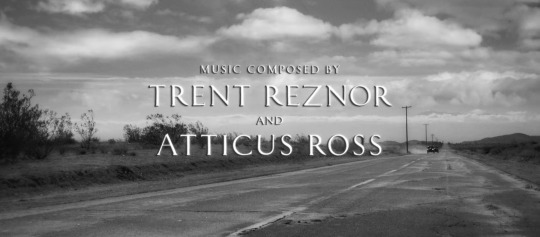
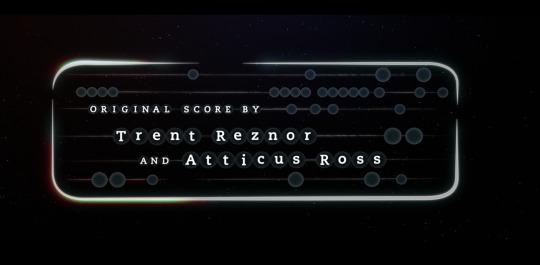
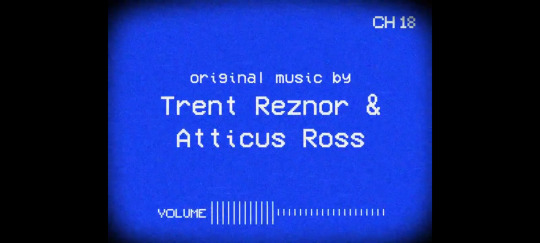
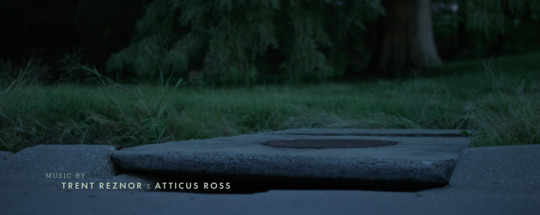
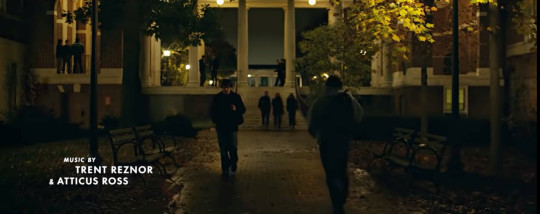

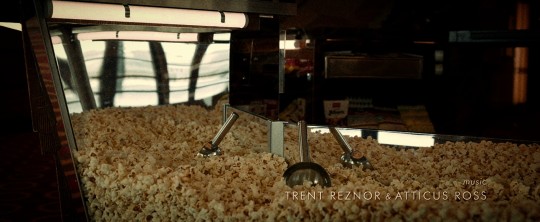
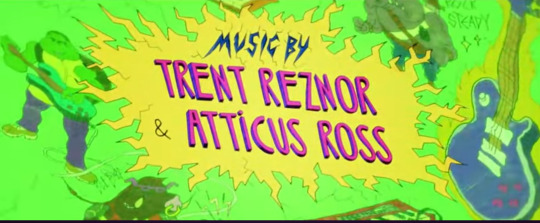
Music By Trent Reznor and Atticus Ross
#trent reznor#atticus ross#nine inch nails#nin#the killer#the girl with the dragon tattoo#mank#soul#mid90s#gone girl#the social network#waves#empire of light#teenage mutant ninja turtles#mutant mayhem#david fincher#film scores#film composer#opening credits#trent reznor and atticus ross
1K notes
·
View notes
Text
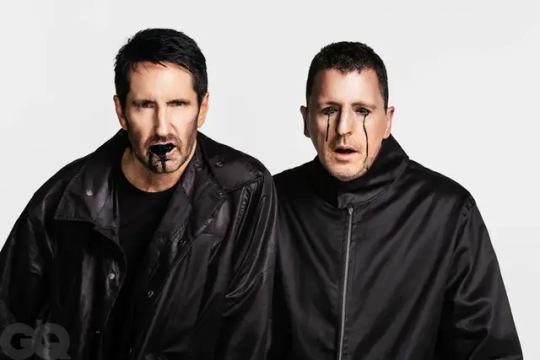


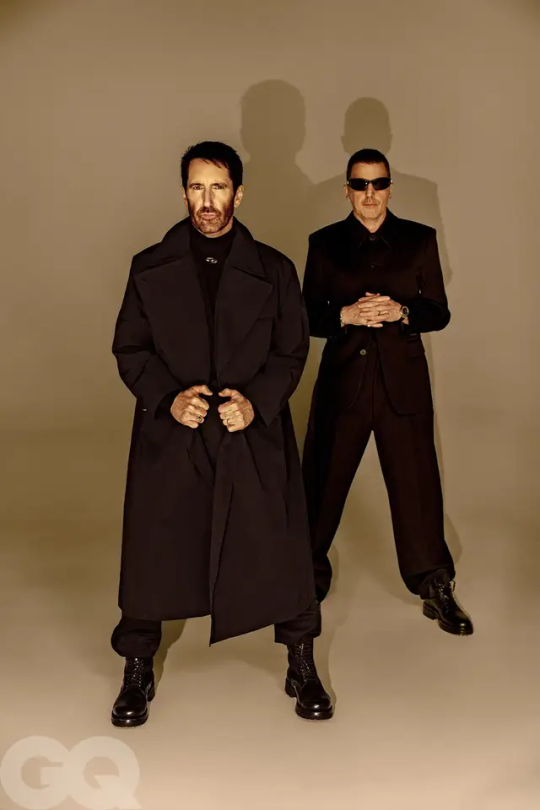
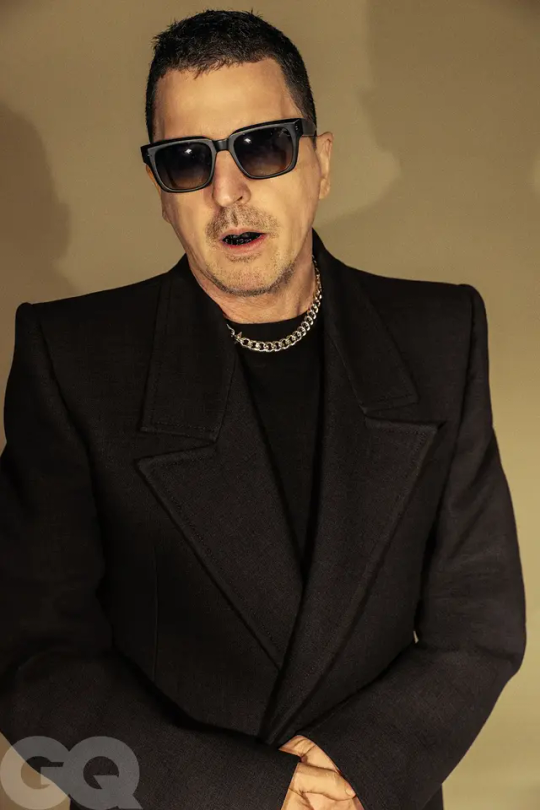

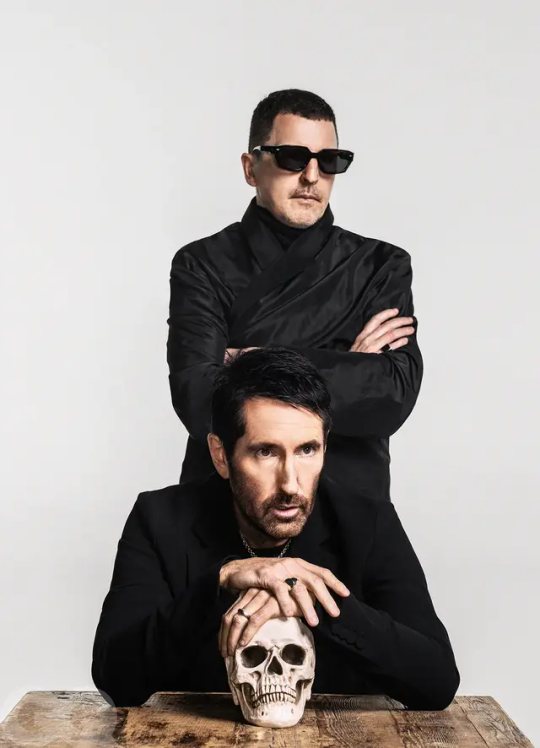

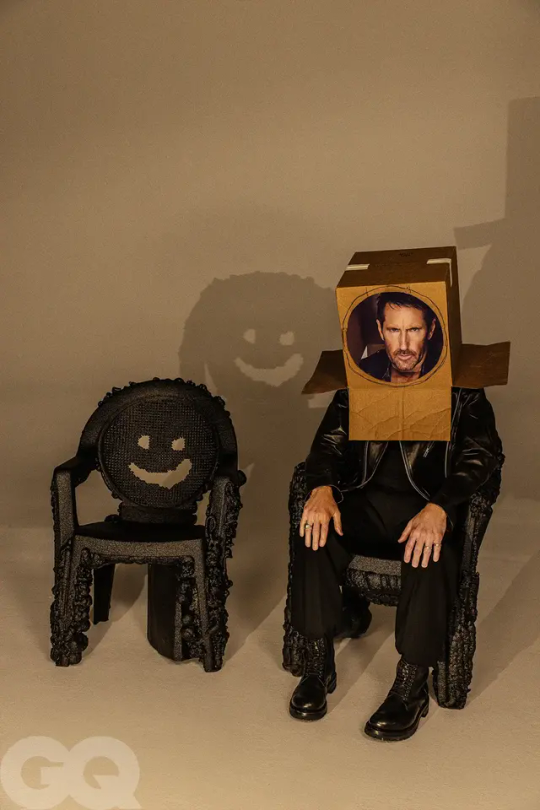
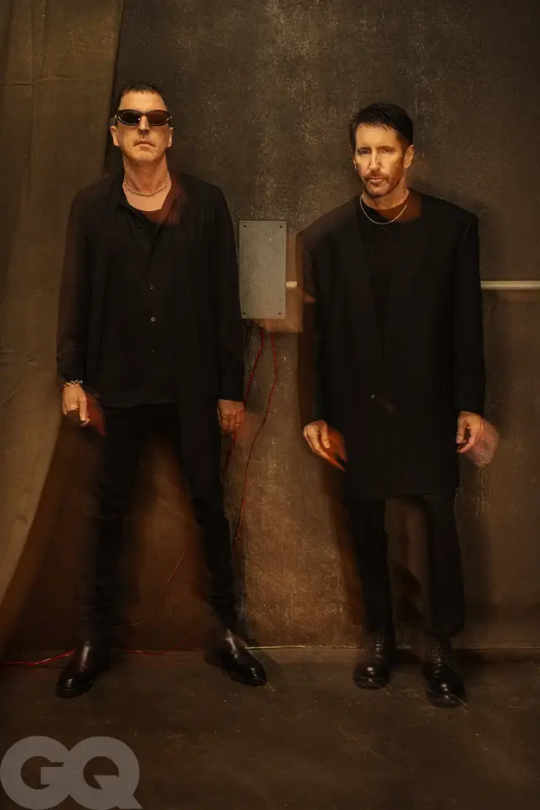
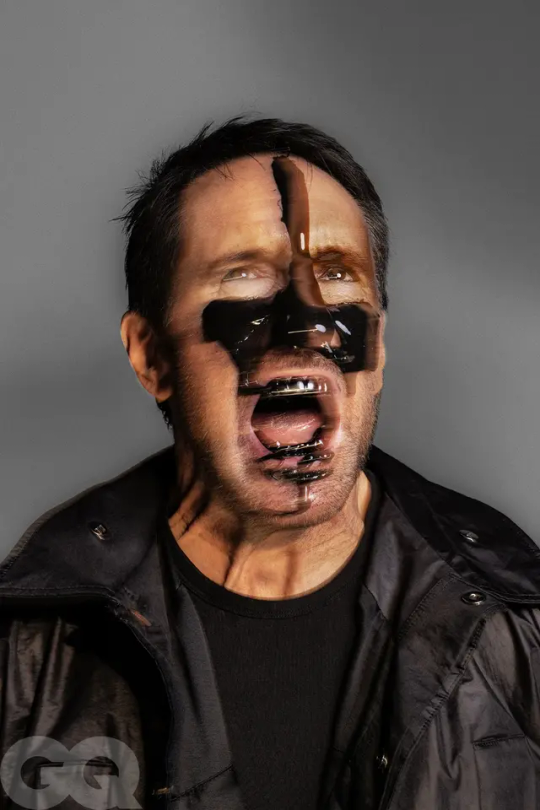
Photos by Danielle Levitt for GQ, in a now-deleted article.
GQ Article
Outfit details:
Photos 1, 6, 8, and 11: On Trent Reznor: Coat by Faqtpry. T-shirt by Calvin Klein.
On Atticus Ross: Jacket by Faqtory.
Photo 2: Cape by Dolce & Gabbana. Turtleneck by Ralph Lauren Purple Label. Ring (on left ring finger, throughout) his own. Ring (on left pinkie, throughout) by Møsaïs Paris from Voyager Archive.On Atticus Ross: Shirt by Willy Chavarria. Jeans by Ralph Lauren Purple Label. Boots by Christian Louboutin. Sunglasses by Gentle Monster. Necklace, bracelet, and ring (on right ring finger, throughout) by The Great Frog. Ring (on pinkie, throughout) by Parts of Four from Voyager Archive. Ring (on left ring finger, throughout) his own. On Trent Reznor: Jacket by Canali. Shirt by Rick Owens. Trousers by Ralph Lauren Purple Label. Boots by Balenciaga. Necklace from Voyager Archive. Ring (on right ring finger, throughout) by The Great Frog.
Photo 3: Cape by Dolce & Gabbana. Turtleneck by Ralph Lauren Purple Label. Ring (on left ring finger, throughout) his own. Ring (on left pinkie, throughout) by Møsaïs Paris from Voyager Archive.
Photo 4: On Trent Reznor: Coat and trousers by Willy Chavarria. Sweater by Diesel. Boots, his own. On Atticus Ross: Jacket by Versace. Tank top by Junya Watanabe Man. Trousers by Fear of God. Boots by Gianvito Rossi. Sunglasses by Gentle Monster. Watch by Hublot. Ring (on left hand), his own. Bracelet and ring (on right hand) by Eliburch Jewelry.
Photo 5: Jacket by Bottega Veneta. Sweater by Zegna. Sunglasses by Barton Perreira. Wallet chain (worn at neck) by Martine Ali.
Photo 7: On Atticus Ross: Coat by Saint Laurent by Anthony Vaccarello. Scarf stylist’s own. Sunglasses by Ahlem. On Trent Reznor: Jacket by Dolce & Gabbana. Sweater by Ferragamo. Necklace by The Great Frog.
Photo 9: Jacket by R13. Tank top by Givenchy. Trousers by Ralph Lauren Purple Label. Boots by Balenciaga.
Photo 10: On Atticus Ross: Shirt by Willy Chavarria. Tank top by Junya Watanabe Man. Jeans by Ralph Lauren Purple Label. Boots by Christian Louboutin. Sunglasses by Gentle Monster. Necklace and bracelet by The Great Frog. On Trent Reznor: Jacket by Fear of God. Shirt by Rick Owens. Trousers by Ralph Lauren Purple Label. Boots by Balenciaga. Necklace from Voyager Archive.
388 notes
·
View notes
Photo
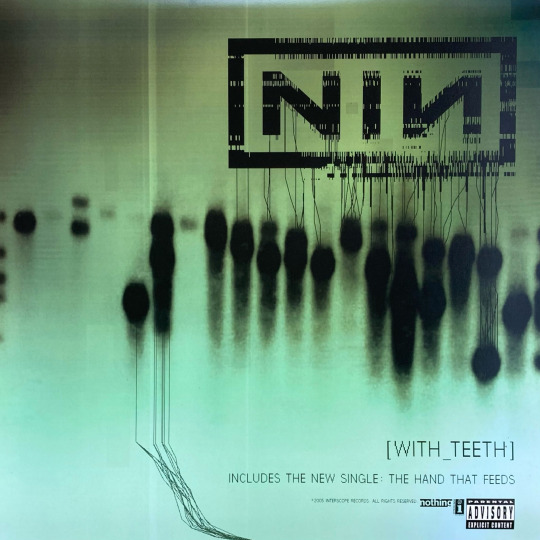
(2005)
#music#nin#rob sheridan#with teeth#2005#albums#2000s#trent reznor#dave grohl#atticus ross#nine inch nails#halo 19#hologram parade#nothing records#promo poster#poster#right where it belongs#all the love in the world#the hand that feeds#every day is exactly the same
555 notes
·
View notes
Text

all the pigs are all lined up... as well as we could make them, anyway.
individual pigs under the cut
Trent and Attipork Ross
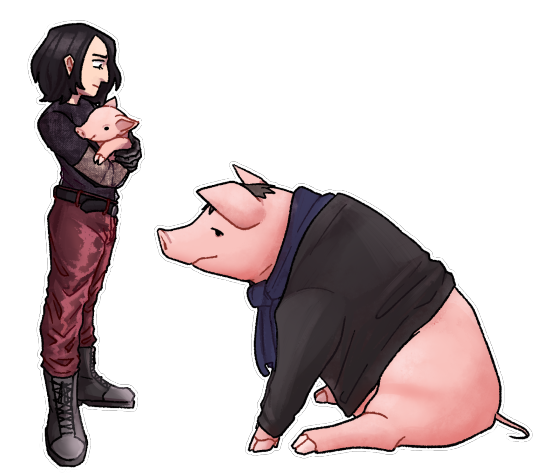
Piggy, Danny Swiner and Squealan Rubin

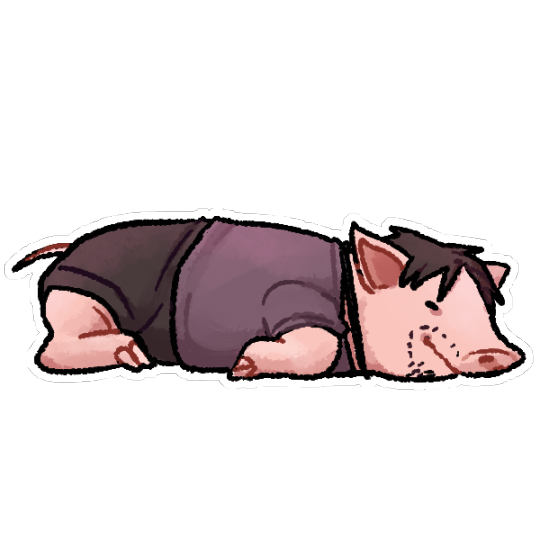
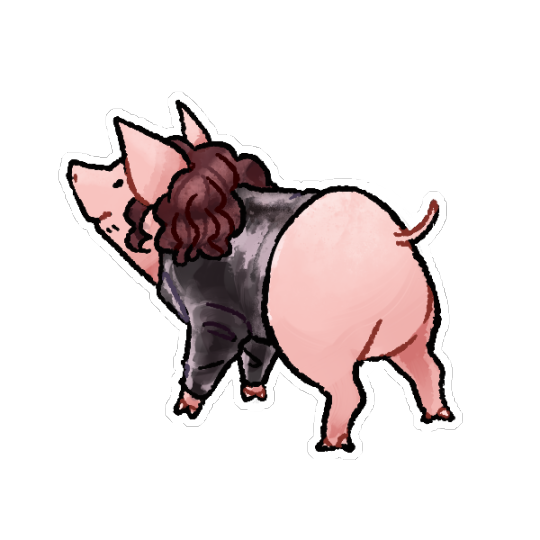
Charlie Snouter and Hogin Flank

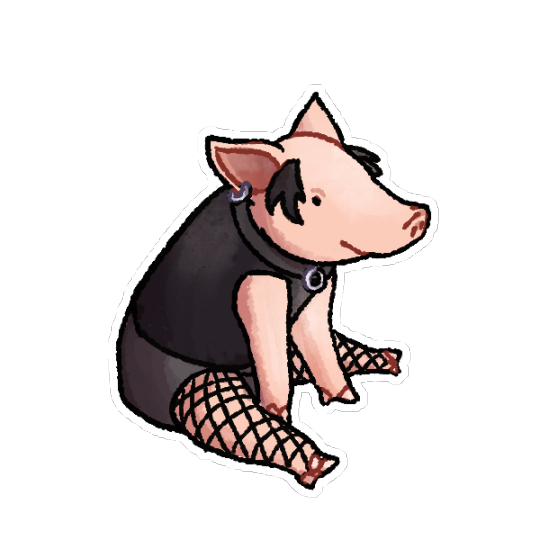
Chris Vienna Sausage and Alessandro Porcini
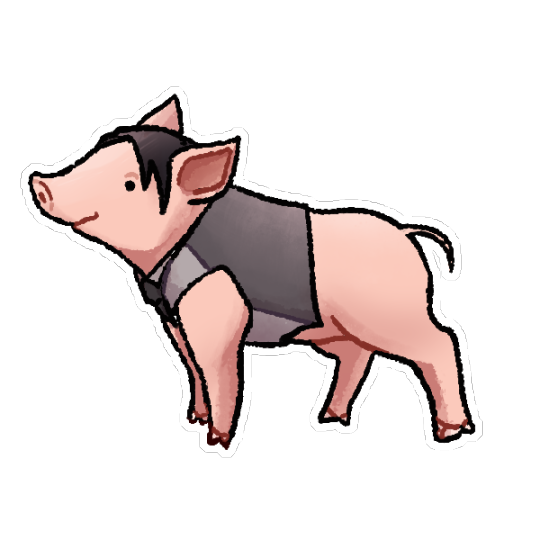

#kris draws#nin#nine inch nails#trent reznor#the downward spiral#robin finck#charlie clouser#richard patrick#ilan rubin#chris vrenna#danny lohner#atticus ross#alessandro cortini#coming up with little piggy names for all of them was hard. thanks to my friends for coming up with a few of them#such as. chris vienna sausage#and squealan. that one was good#thanku seona and b#fun fact this is why i had that piggy trent on hand#cos id been drawing pigs all day. turns out when you draw an animal like 9 times#you get decent at it#anyway look upon my piggies ye mighty and go awww#i just went for the 2022 live in cleveland gang... sorry jeordie aaron etc
169 notes
·
View notes
Text
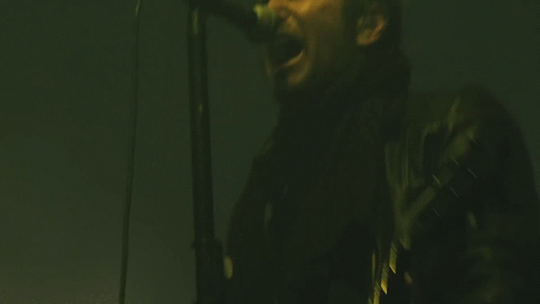
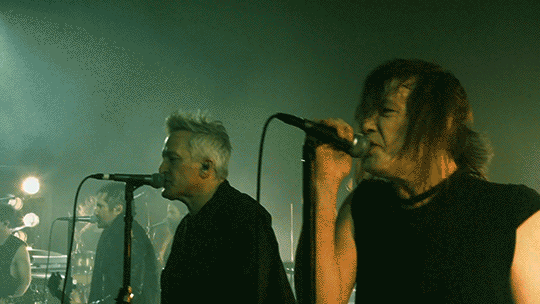
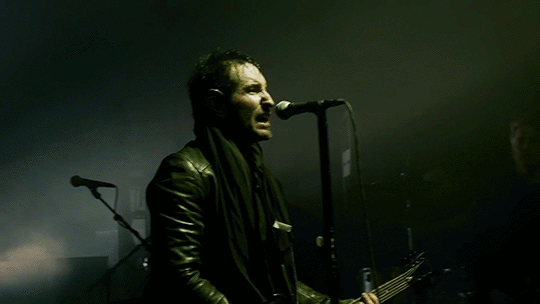

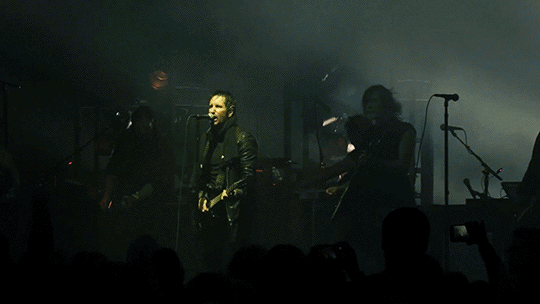
Nine Inch Nails (& Alumni) - Wish (Live in Cleveland 9.24.22)
#nine inch nails#nin#trent reznor#atticus ross#richard patrick#charlie clouser#danny lohner#alessandro cortini#robin finck#ilan rubin#chris vrenna#christ there's a lot of members lmao#industrial#90s music#.gif
174 notes
·
View notes
Text
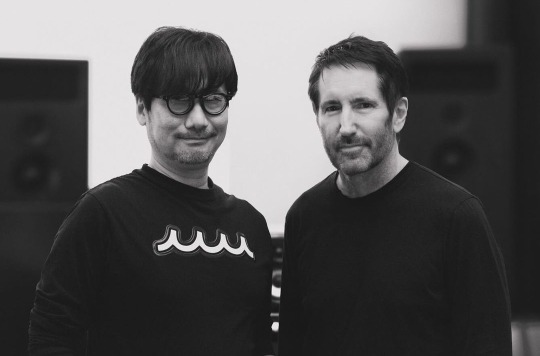
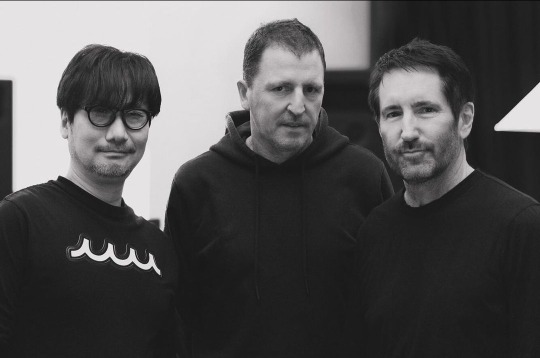
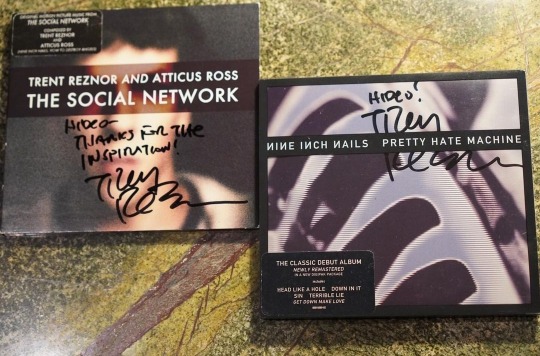
Hideo Kojima, Trent Reznor and Atticus Ross
#hideo kojima#trent reznor#atticus ross#NOT EVEN IN MY WILD DREAMS I WOULD PREDICT TO SEE THEM BOTH TOGETHER#PLEASE WORK TOGETHER#CAN YOU IMAGINE NIN ON DEATH STRANDING ALTHOUGH I BELIEVE IT'S FOR OD#DOESN'T MATTER I WANT THIS LIKE A KID WANTS CANDY#OH MY GOD#screaming throwing out and crying
167 notes
·
View notes
Text
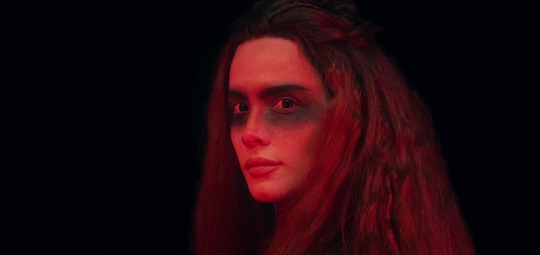
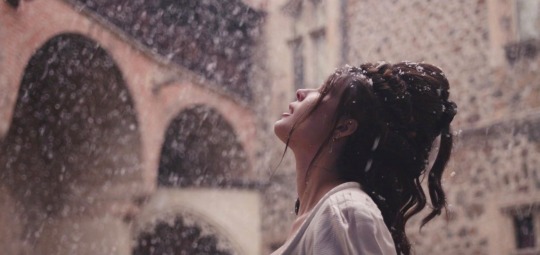
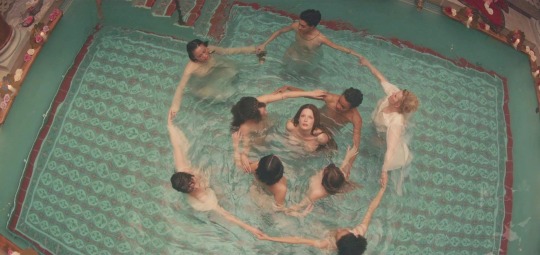


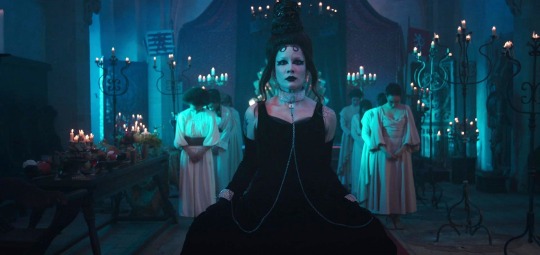
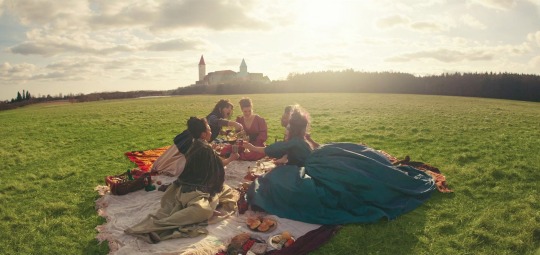
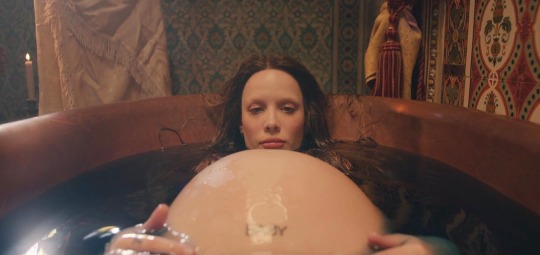

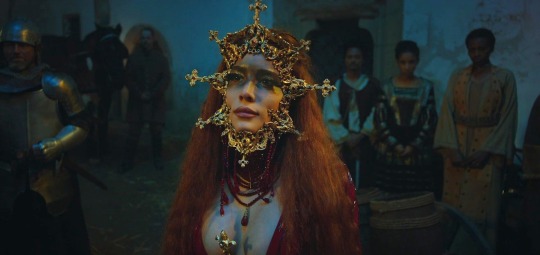
— If I Can’t Have Love, I Want Power (2021) by Halsey, directed by Colin Tilley.
#iichliwp#halsey#if i can't have love i want power#2021#screencaps#beauty#1121#lilith#musicians#music#music video#movie#colin tilley#trent reznor#atticus ross#nine inch nails#sasha lane#vuk celebic#alternative rock#grunge#movies#album#edit
207 notes
·
View notes
Photo



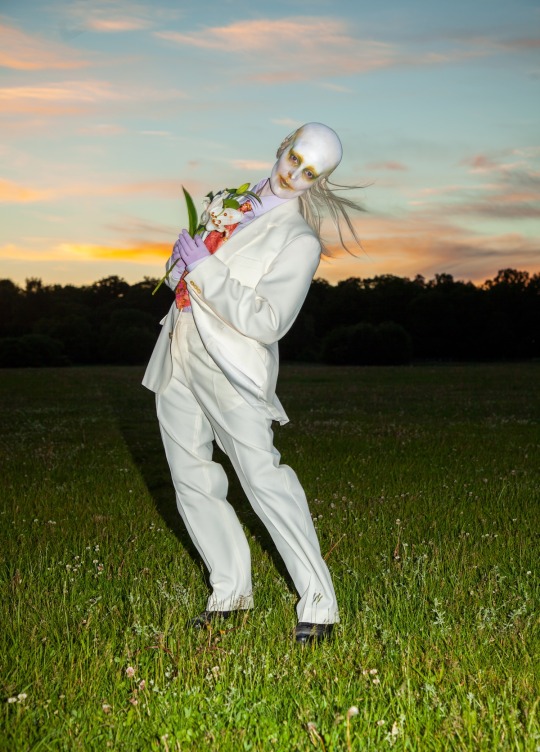
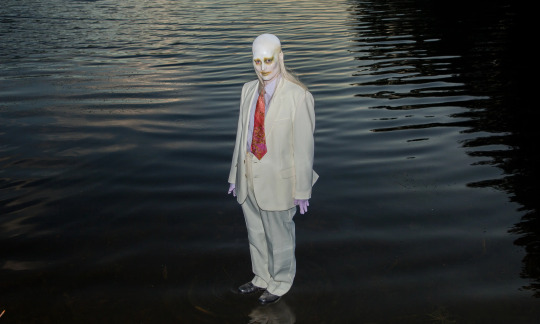


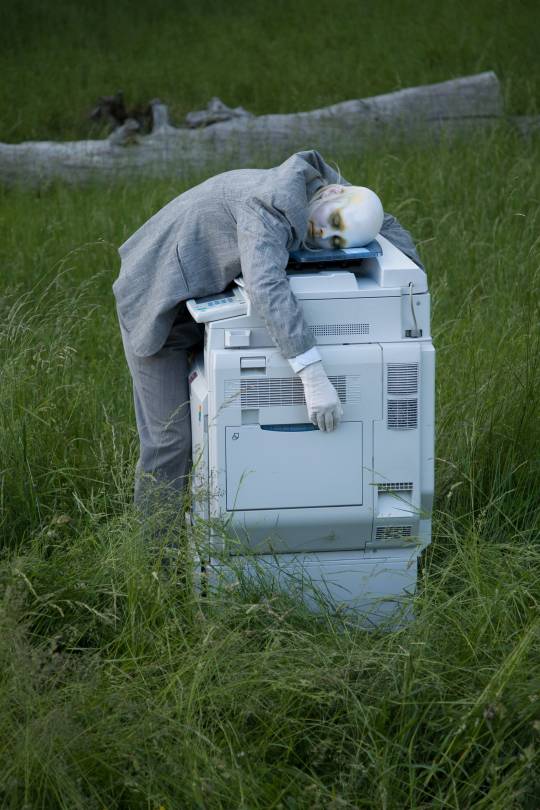
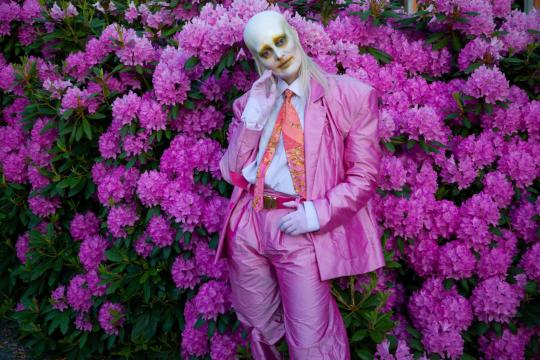
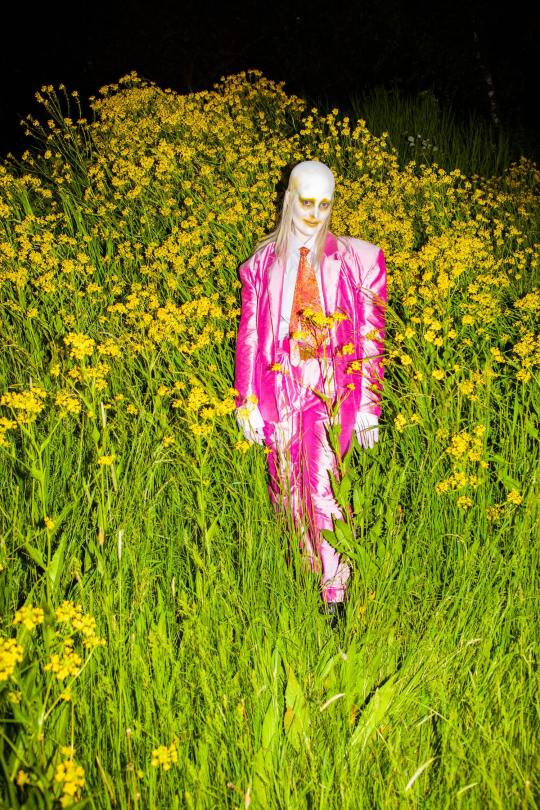
"RADICAL ROMANTICS" (2023)
Fever Ray + Nina Andersson
#fever ray#karin dreijer#olof dreijer#the knife#queer#art#music#album#artwork#cover#photoshoot#era#radical romantics#sebastian gainsborough#seb gainsborough#trent reznor#atticus ross#nine inch nails#carbon dioxide#martin falck#vessel#nidia#nina andersson
1K notes
·
View notes
Text

Trent Reznor and Atticus Ross at the GQ Global Creativity Awards (2024)
#reposting with correct info#yeah i could have just EDITED the old post but i'm dumb#nine inch nails#nin#trent reznor#atticus ross#photos
111 notes
·
View notes
Text

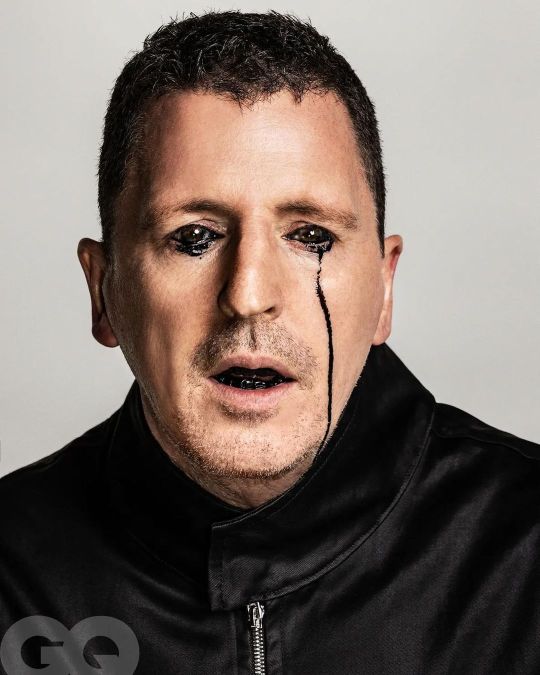


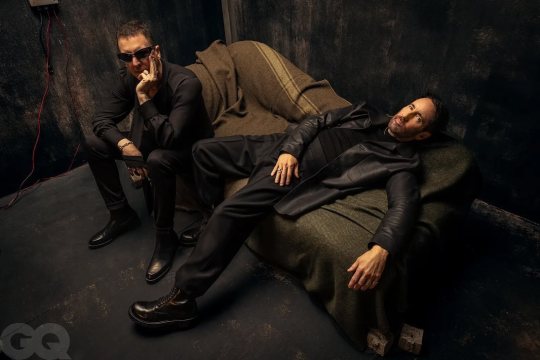


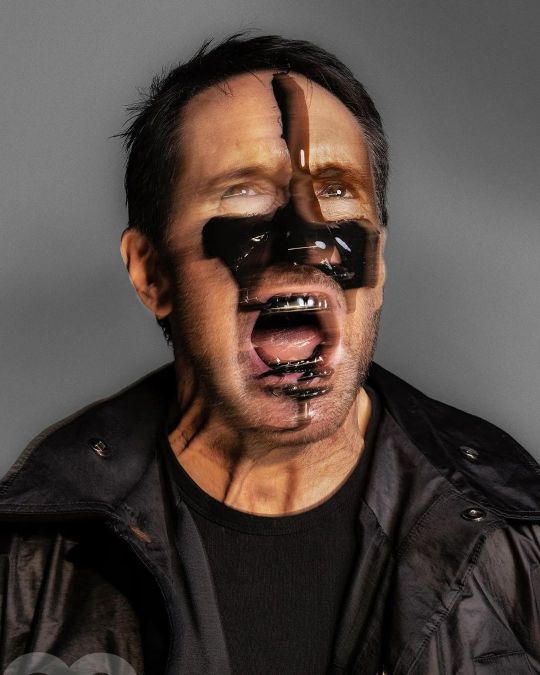



PHOTOS BY DANIELLE LEVITT FOR GQ MAGAZINE
#NIN#nine inch nails#trent reznor#atticus ross#HIII GIRL you are SO#anyway i shant be putting any more of my usual tags on thisun#source for these is starfuckers.inc on instagram!#for some reason the article itself has been taken down... for now
113 notes
·
View notes
Text
Video from GQ in IG
139 notes
·
View notes
Text
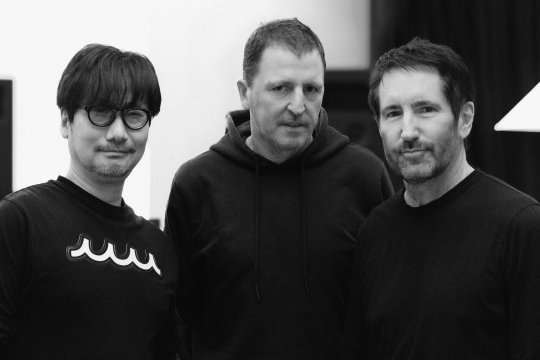

New pics of Trent and Atticus with Hideo Kojima dropped! :D
Taken from Hideo Kojima twitter
98 notes
·
View notes
Text
Trent Reznor and Atticus Ross have a plan to soundtrack everything
Trent Reznor and Atticus Ross – best friends and Nine Inch Nails bandmates – found unlikely creative fulfilment (and a couple of Oscars) by reassessing what they had to offer as musicians. Now they’re thinking even bigger, and imagining an artistic empire of their own making
By Zach Baron
Photography by Danielle Levitt
Every weekday, Trent Reznor makes his way from his house, a cottagey sprawl behind a white wall in a canyon on Los Angeles’s Westside, to a studio he’s built in his backyard. There he meets his best friend, bandmate, and business partner, Atticus Ross, and they get to work. Reznor and Ross observe the same hours, Monday to Friday, 11am to 7pm. “We show up,” Reznor told me. “We’re not late. We’re not coming in to start to fuck around.” It’s a methodical, orderly existence that Reznor could not have foreseen in the ’90s, when he was fronting Nine Inch Nails and struggling with a drug-and-alcohol problem that was his answer to success. “I would do anything to avoid writing a song,” Reznor said. “I’d rewire the studio 50 times.”
Now Reznor has a wife, Mariqueen Maandig, five children, and multiple jobs. He is sober. Since 2010, when the director David Fincher asked Reznor and Ross to score The Social Network, for which Reznor and Ross won an Oscar, the two men have had steady employment composing for film. This year, Reznor and Ross are also starting a yet-to-be-named company, built around storytelling in multiple disciplines: film production, fashion, a music festival, and a venture with Epic Games.
And then, of course, there is the oldest and perhaps still the most complicated of Reznor’s jobs: being the frontman of Nine Inch Nails. In 1988 Reznor formed what was then a one-man band; the first two full-length records Nine Inch Nails released, Pretty Hate Machine(1989) and The Downward Spiral (1994), have sold more than eight million copies. (Over subsequent years and subsequent albums, the band has since crossed the 20 million mark in sales.) In the ’90s, for a time, Nine Inch Nails were ubiquitous: a phenomenon on the level of Nirvana or Dr Dre. During that decade, the success of the band nearly killed Reznor. “I didn’t feel prepared to process how disorientating that was,” he said. “How much it can distort your personality.”
These days, Nine Inch Nails, which Ross joined as a full-time member in 2016, present a different problem – how do you make something old, something so already well-defined, new again? There are years when Reznor feels like he has the answers and years when he’s less certain. He has put the band on hiatus more than once; after the last Nine Inch Nails tour, in 2022, Reznor deliberately took a break from playing shows as well. “For the first time in a long time I wasn’t sure: what’s the tour going to say?” Reznor told me. “What do I have to say right now? We can still play those songs real good. Maybe we can come up with a new production. But it wasn’t screaming at me: this is what to do right now.”
But he and Ross still come to work, daily, in search of transcendence. “We sit in here every day,” Reznor said. “And a portion of the time organically becomes us just figuring out who we are as people and processing life and a kind of therapy session. And in those endless hours it’s come up: why do we want to do this? And the reason is because we both feel the most in touch with God and fulfilled.”
It is easy to make things when you are a teenager growing up in rural Pennsylvania, near the Ohio border, as Reznor was, and you have nothing to lose and everything to gain; it is considerably harder, once you’ve got older, and found a way to make things that people like, to keep going. It’s an old story: the act of creation can lift you up, but those sharp gifts can also destroy you, and if you make it past that, the sheer blissful regularity of life with money and a family can even you out so thoroughly that there is no friction left to work with. You look inside the cupboard and the cupboard is bare, or it’s a mansion and living inside of it is a person you’re bored of, and so you stop looking. But Reznor and Ross have never stopped looking, and the search for that magical feeling of finding something – that feeling of, in Reznor’s words, “I don’t know where it came from. I don’t know how I just did what I did, but I’ve channelled it into something that worked” – is still the thing that organises their days and their moods.
We were talking in their studio, which was low-lit and cold and full of synthesizers’ blinking lights. Reznor was on a sofa and Ross sat in a chair nearby. The two men first met in the ’90s, when Reznor signed Ross’s band, 12 Rounds, to Reznor’s Nothing Records. Soon after, they became friends, and then musical collaborators. “I was just getting sober,” Reznor said, “and I was in a pretty fragile transitional phase. And I just hit it off with Atticus right off the bat. And part of it was, he was someone who was on much firmer ground, in a mentor-y kind of way, than I was.”
Ross is two years younger than Reznor, but when they met, he’d already been through certain things Reznor was just getting around to. “I got clean when I was very young,” Ross told me. “So I had a bit more experience than him. Put it like this: I knew you could have fun without being high.”
Their friendship has been a constant in both their lives since. “I don’t know if parts of us are broken and we don’t feel good enough,” Reznor said, staring at the ceiling of the studio, “but we know if we work as hard as we can and do the best work we can, it fixes something. At the core of it, that’s what unites us creatively. On top of that, I think his take on the world and role in life helps me understand my place and not feel as detached in some ways.”
Reznor often jokes, or simply explains, that he is a “quart low” on whatever it is that makes people happy. “I think we can both, on our own devices, run below zero as a baseline,” Reznor said. “I don’t mean manic depression, I just mean we don’t take compliments well. It’s like when we won the Oscar, it was the day after: ‘Let’s take today guilt-free, kind of say fuck yeah.’ And tomorrow we’ll have settled back down to a few feet below sea level.”
In their years of collaborating with each other, both men have found some mutual reassurance – a little lift. Reznor gestured at Ross.
“I remember something he said to me – I don’t know if you want me to say this or not – in one of our talks years ago: ‘Here’s what I want today.’”
“I see what’s coming,” Ross said, nervously.
“I just want to feel OK,” Reznor said, quoting his friend. “I want to feel like I’m OK.”
One day this winter, Reznor greeted me at the door of their studio – in the course of reporting this story, I never saw him anywhere else – wearing a black hoodie made by the synthesizer company Moog, black jeans, and black running shoes. At 58, Reznor still retains the angular intensity and jet-black hair of his youth, but time and fatherhood seem to have made him quicker to smile. He looks a little like a college professor now, or an unusually-well-cared-for software engineer. He led me back, past walls of unused gear and several black-clad mannequins, all of which startled me, to their primary workspace, where Ross – a tall west Londoner (he grew up in Ladbroke Grove) with a stern face and a pleasantly reedy voice – sat at a computer, also all in black. (Once, I asked the two men whether their upcoming clothing line would feature any colour. “No,” Reznor said, incredulously. “Of course not.”)
They were on deadline for two films at the moment, including Luca Guadagnino’s forthcoming Queer. “But we’re trying not to work,” Reznor said, drily. Leaned up against one wall was a photo of the two in tuxedos, accepting the Academy Award for best original score for their work on The Social Network. Reznor had contributed to soundtracks before, in the ’90s, but he’d never formally scored a film until The Social Network.
But Reznor and Ross quickly realised that the work, in some ways, wasn’t so different from songwriting. “What do we do when we write a song?” Reznor asked. “We’re trying to emotionally connect with somebody.” Take the Mark Zuckerberg character in The Social Network:“Here’s somebody who thinks this idea is so important that it’s worth kind of fucking your friends over for it. And then realising maybe it wasn’t worth it, or I didn’t realise how I’d feel if I got what I wanted at the price of this. I can relate to that in my own language. Suddenly there’s music.”
“I’m grateful not to be as angry and frustrated and desperate as I have felt in the past,” Reznor said. “I couldn’t have predicted that I would feel this level of fulfilment.”
And Reznor found that he enjoyed the exercise of solving someone else’s problems instead of his own. “There’s something about not being the boss and working again in service to something that I initially felt guilty for feeling kind of fulfilled by in a weird way.”
Reznor said that on another Fincher film, Mank, the director suggested: “What if it sounded like maybe inspired by Bernard Herrmann and as if it were recorded in 1935 and this film canister sat on the shelf for 60 years?” OK, interesting. (Ross and Reznor were nominated for that one too.)
On the first film the two men scored for Guadagnino, Bones and All, “we got a cut of that that was nearly four hours long with no music and we kind of thought, Oh, fuck,” Reznor said. “Four hours we sat without a pee break, transfixed. It didn’t need music. And when you watch that you approach it differently.” Then Guadagnino brought them Challengers, due for worldwide release in April. Reznor said, “He started us down a path, saying, ‘What if it was very loud techno music through the whole film?’” (This is exactly what it turned out to be.)
“I wish I had his notes,” Ross said of Guadagnino. “His notes were so fucking funny on what each piece was meant to do.”
“Oh, yeah,” Reznor said. “‘Unending homoerotic desire.’ It was all a variation on those three words.”
They liked the challenge of scoring, they found, and that feeling of not being in control. They also liked the way it made them crave being in control again: “It makes you more inspired to work on other stuff when we’re finished,” Reznor said. “Even if it’s just, Thank God it’s done now and we can appreciate the freedom we had before we gave it up.”
These days, Reznor and Ross also like having jobs that let them be at home, around their families. Both men had tumultuous or lonely lives when they were younger; both men have found that fatherhood soothes certain unresolved aspects of their pasts. Ross has three kids, and “probably the greatest reward is how balanced and happy they all are compared to – certainly my growing up was an unusual sort of scenario. It was a fairly chaotic youth.” Ross comes from a notable English family, but his immediate lineage was more unstable. “My dad had a club called Flipper’s Roller Boogie Palace in LA in the ’70s,” Ross told me. “He went bankrupt in England and had a judgment passed against him where he couldn’t talk to a bank manager for 15 years. So he moved here and opened this sort of Studio 54 on roller skates on La Cienega and Santa Monica.” Ross held up a coffee-table book full of photos of the club. “You don’t need to look at it, but it was just a mad life. So I grew up in some madness.”
It is particularly endearing to see Reznor, who at a distance was a fierce and terrifying figure in his 20s and 30s, find domestic bliss. I am old enough that my adolescence coincided neatly with the S&M-flavoured, I wanna fuck you like an animal era of Nine Inch Nails; when I was leaving Reznor’s house one day, I noted with some amusement the cheerful mundanity of a basketball hoop in the backyard. “I’m grateful not to be as angry and frustrated and desperate as I have felt in the past,” Reznor told me. “I couldn’t have predicted that there was a world where I would have a sizeable family with kids and feel the level of fulfilment and comfort and be able to live in that.”
Was that something you were consciously seeking before you found it?
“I think I had some abandonment issues from my parents splitting up, or feeling I never fit in, and I’d gotten accustomed to being on my own. And largely due to my own, I think, inability to really be intimate with people, or share or be open or know how to be a friend or a partner to somebody… Trying that out and doing it with pure and full immersion has led to an unexpectedly great outcome.”
-----------------------
The other film project Reznor and Ross were on deadline for was Scott Derrickson’s The Gorge, a science-fiction thriller starring Miles Teller and Anya Taylor-Joy. They were working on a lengthy, music-dependent scene that they’d already mostly scored. But, Ross said, “the director wants it to be a bit more, I can’t think of a better word than just a bit more scary and intense.” They weren’t sure what that directive meant, exactly, but they were content – they were happy – to try to figure it out: to enter the room once again, carrying nothing, and to try to leave it with something that didn’t exist before.
Ross called up the scene on a monitor at the centre of a long mixing board: Teller and Taylor-Joy in an evil-looking spiky forest. Reznor and Ross have somewhat fluid roles in their collaboration, but today the plan was for Reznor to improvise some music while Ross edited and manipulated it in real time. “Atticus’ superpower,” Reznor said, “is that I can come up with a melody and a chord change, and he can make that sit on the scene in a way that is meticulous, and mind-numbingly boring to watch him do.”
A studio assistant, also in all black, presented himself to help Reznor set up a microphone and a cello next to a keyboard that sat underneath another computer monitor. Ross hit play on the footage and what they’d already completed of the score, a kind of haunted, chanting murmur. “It’s basically atmosphere at the moment,” Ross said. Next to him was a synthesizer whose make and model he asked me not to print and which the two men use as a kind of sound ecosystem to feed stuff into.
Reznor began by pushing down on the piano’s keyboard, while with his other hand he manipulated the sound with a flat synthesizer on the desk in front of him. It began as a kind of mellow pan flute thing, and then, with a push of a few buttons, became more of a sad, Social Network-ish plonk. Ross stood up and started tapping the synthesizer to his left, and the sounds Reznor made began to loop and accumulate – little melodic figures that plunged in and out of feedback. Reznor moved from the piano to the microphone, where he sang a few soft passages in a baritone falsetto, more sad than spooky, and then to the cello, which he played slowly and choppily. Ross moved between the computer and the synthesizer, trying to harness it all as it built to a loud, echoing crescendo.
After about 20 minutes, Reznor sat back in his chair, and Ross soon followed suit. Everything got quiet again. “It’s going fishing,” Reznor said to me, shrugging. “Sometimes something happens.”
-----------------------
Or, sometimes, everything happens. One of the first things you see when you arrive at Reznor’s home studio are two original paintings by the Yorkshire artist Russell Mills – on the left, a razor against a rusty red background; on the right, a decaying yellow-and-black collage – that ultimately became the insert and the cover art for Nine Inch Nails’ The Downward Spiral. This is the record with “Hurt” and “Closer” on it. It’s an album Reznor nearly didn’t survive.
Why do I bring this up? Well. If I may, for a moment, sound like the ageing dude in a black T-shirt leaning against the back wall of a bar where you’re just trying to be young and free of recitations of what the year 1994 felt like, there was a different quality to the way things would happen in music. Bands would labour for years, unknown, and then just get struck by lightning, is the best way I can put it: one day, you’re just a guy, and then one radio station plays your song, and then every radio station plays your song, and everyone is listening to those radio stations, because there is nothing else to do, and then MTV loops your video, and everyone watches it because, again, there is nothing else to do, and all of a sudden you are known by millions of bored people in a way that doesn’t quite happen now. This is a gross oversimplification, of course, but here Reznor is, one of the very few people who have experienced the thing I’m describing. I thought: let’s just ask him what that was like.
Reznor said, OK, he could tell me exactly what it felt like. He gave me a single moment: Woodstock ’94, which Nine Inch Nails almost didn’t play – “it seemed like it was going to be gross, to be honest with you” – but ultimately did. “And when we got there, it was terrifying,” Reznor said. “It was way bigger than I pictured in my head and walking on stage. But this is the point of the story: I knew. You could feel like you were in the right place at the right time.”
In retrospect, how did you handle success?
“Had a drink. That’s what sent me down the path. I wasn’t the guy that, you know, at 12 years old cracked a beer. That wasn’t it at all. Just, I feel anxious around people. I’m not sure how to act, especially now that you’re someone that’s supposed to act a certain way. There’s a projection. It feels uncomfortable to walk down the street and people are looking at you because they recognise you. That’s weird. Suddenly everybody wants to be your friend and you’re the coolest. Everyone wants to date you and shit like that.” Reznor said he found it was “easier to have a beer before I go in that room, and then a couple of beers before I go in that room. And pretty soon over a period of time, wait a minute, things start to get out of control. And you know how the story goes.”
Here’s how the story went: Reznor began to wonder if Trent Reznor could ever live up to the Nine Inch Nails guy that people had in their heads. “The reason I was having to drink was to fix that problem, my own insecurity. But the net result is: I’m not really who I am because now I’ve got drugs or alcohol in my system and I’m not thinking as who I really am. And that comes into focus once one gets sober and has time to reflect and kind of think about what got you there and shit you did.”
Eventually, Reznor got sober, and built himself back up. Today he’s happy to talk about all of it, obviously, but he and Ross have done a lot together since – 10 albums’ worth of Nine Inch Nails (Ross was an official member of the band for five of them), among other things – and Reznor is, by nature, not one to dwell too much on the past of a band that he’s still very much trying to figure out. “We’re not fans of resting on our laurels. We’ve been afraid of thinking about nostalgia. That’s a whole other conversation, but the reality is we’re getting older and our fans are getting older and that’s a fact. And I think, say, during the pandemic, not that you asked this question, but as I’m sure everybody was, I was pretty genuinely freaked out and very clearly came into focus: I’ve got to protect my family.”
He was consumed by fear, by terror of what might happen, of what he might do about it. “I can’t even fit all my kids in a car,” Reznor said. “But in the midst of that anxiety, sitting alone in here, I found comfort in nostalgia. I found comfort looking back at things from my youth that I’ve been afraid to even allow myself to glimpse at because it meant artistic death. Because one has to look forward. One can’t be self-referential. I was so afraid growing up in a little shitty town. I could see people that thought the highlight of their life is junior in high school catching the football. You know what I mean? That’s it. That was the peak. I don’t want to fucking be that person. I could see my fate if I stayed in that town.”
In those moments sitting by yourself, what were you getting nostalgic for?
“I miss parts of living in Pennsylvania. I miss a simpler life that I grew up with. I really loved the first INXS album in 1983. I was a senior in high school, and when I listen to it now I could almost start crying because it fucking reminds me of driving in a shitty fucking car in the summer in Pennsylvania. You know what I mean? Man. I allowed myself to kind of immerse myself in who I was at that time, and what it felt like.”
Reznor had been trying to remake himself ever since he left where he grew up, and now here he is in Los Angeles, over 40 years later. “And I kind of went on a deep dive for a while and allowed myself to realise: I am who I am. And the things that made me weren’t the cool things. I’d always been ashamed of: I came from a shitty town; I didn’t have an exotic upbringing; shitty education, you know what I mean? That’s who I am. I’m not sure what the point of all that confession was.”
Well, except: “It plays into where I’m at now.”
-----------------------
The last time I saw Reznor and Ross, it was once again in their studio. They were sitting very still. Had they been working before I got there?
“We were for a little bit,” Ross said. “And then nervously thinking about you arriving.”
Really? It’s OK if that’s the truth.
“That’s the truth,” Reznor said. They’d just been in this room for the past weeks, months – years, really, he said. Head down. Working. He gestured at me. “It’s a different mindset.”
And “I was thinking about something you said the other day,” Reznor said. That was on a Friday. I’d asked a somewhat rude question about their soundtrack work, which was: why would Reznor or Ross work for anyone else when they didn’t have to?
Now it was Monday. “I thought about that over the weekend,” Reznor said. “It’s like, Why are we doing this? The idea comes from what we think is a good place of ‘Let’s break it up. Let’s get sent down the rabbit hole on certain things and feel like we’ve got tasks being assigned to us rather than us just blindly seeing what happens creatively.’ ”
But, he said, “I think coming out of a stretch of a number of films in a row, I want some time of seeing where the wind blows versus: there’s a looming date on a calendar coming up and we’d better get our shit together. And certainly in the last few weeks I’ve been itching to do what we often do, which is just come in and let’s start something that we’re not even sure what it’s for.”
Some of that energy, he and Ross said, would probably become the next Nine Inch Nails album. Doing soundtrack work, Reznor said, had “managed to make Nine Inch Nails feel way more exciting than it had been in the past few years. I’d kind of let it atrophy a bit in my mind for a variety of reasons.”
But now, “I do feel excited about starting on the next record,” Ross said. “I think we’re in a place now where we kind of have an idea.”
And then there was the company, which Reznor and Ross spent the last two years putting together, piece by piece, with the help of John Crawford, their longtime art director, and the producer Jonathan Pavesi. The idea was, what could they do that they hadn’t already done around storytelling? Some of that might take the form of examining Nine Inch Nails from yet another angle – “we’ve been working on homegrown IP around Nine Inch Nails, stories we could tell, and we’re working on developing those in a way that are not what you think they’d be.” (As in: not a biopic.) They also have a show in development with Christopher Storer, the creator of The Bear, they said, and a film with the veteran horror director Mike Flanagan.
Reznor put on a pair of black-rimmed glasses so that he could examine a piece of paper next to him. “We just wrote some notes because I knew I’d forget what the fuck I’m about to say.” There was a short film coming with the artist Susanne Deeken. There was a clothing venture, a T-shirt line made in collaboration with a notable designer whose name they’d like to keep secret for now, which will arrive this summer. There was a music festival that they were currently planning, “where we’re going to debut as performing as composers along with a roster of other interesting people,” and a record label, both scheduled to launch around the same time.
And for two years they’ve been working with Epic Games on something that is not exactly a video game, in the UEFN ecosystem Epic has built around Fortnite – “It’s what Zuckerberg was trying to bullshit us into calling the metaverse,” Reznor said. “You can’t say that word any more, but in terms of the tool kit, thinking about it through the lens of what could be possible for artists and experiences, we thought that would be an interesting way to tell a story through that.”
They were nervously contemplating the prospect of having day jobs again, of being responsible for more than just themselves. Early on, as they contemplated launching the company, they’d sat down with David Fincher to ask him about movie production: how does it work? “And he’s like, oh, you’re fucked,” Reznor said. “I can distil a two-hour conversation into that. Because, he said, ‘I know you guys, and no one’s going to care more than you do, and you will not be able to let it go.’”
Reznor has actually had this experience before, of being sucked into a project bigger than Nine Inch Nails and having it take over his entire life. Years ago he worked as an executive, first for Beats and then for Apple, building a streaming-music service.
“Trent was very clear when we started,” Ross said. “We cannot let this get into Apple terrain.”
Reznor laughed. “What I mean by that is – I will make this brief; I’m trying to think through what I’m about to talk shit on. Just to self-censor for a second.”
Reznor paused for a moment and then explained. For years, he said, he’d wondered: what would make a good streaming service? This was before the advent of Spotify in the US or Apple Music. Jimmy Iovine, Reznor’s old label boss – later, Iovine would also become Ross’s brother-in-law, after he married Ross’s sister, Liberty, in 2016 – was launching a music service at Beats, which was then acquired by Apple, and Iovine said to Reznor: come try to make this thing a reality. And Reznor surprised himself by saying yes.
“It was a unique opportunity to work at the biggest company in the world at a high level,” Reznor said. “And it was interesting, the scale of the people that you reach through those platforms, just the global amount of influence those platforms can have was exciting. The political situation I was dropped into was not as exciting.”
Reznor enjoyed working with Apple’s design team and its engineering team. “But it made me realise how much I want to be an artist first and foremost.” Reznor also became discouraged with the possibility of fixing the problem that he was trying to solve. “I think the terrible payout of streaming services has mortally wounded a whole tier of artists that make being an artist unsustainable. And it’s great if you’re Drake, and it’s not great if you’re Grizzly Bear. And the reality is: take a look around. We’ve had enough time for the whole ‘All the boats rise’ argument to see they don’t all rise. Those boats rise. These boats don’t. They can’t make money in any means. And I think that’s bad for art. And I thought maybe at Apple there could be influence to pay in a more fair or significant way, because a lot of these services are just a rounding error compared to what comes in elsewhere, unlike Spotify where their whole business is that. But that’s tied to a lot of other political things and label issues, and everyone’s trying to hold onto their little piece of the pie and it is what it is. I also realise, I think that people just want to turn the faucet on and have music come in. They’re not really concerned about all the romantic shit I thought mattered.”
Anyway, Reznor said, turning to Ross, “That was a long-winded way of saying, when we talked about this company, I just said, ‘Be aware of what success might look like because it will turn into something that eats up lots of cycles and time and attention and energy.’ ”
But, Ross said, taking on new responsibilities was, paradoxically, also a way to stay a little younger. “I know we’ve all been talking about being dads and being adults and all that,” Ross said, “and there is a part of me that thinks: it’s important to keep the kid alive.” Meaning the child inside yourself, rather than the one you’re responsible for.
He told a story about him and Reznor visiting the director David Lynch at his house to work with him on the 2017 revival of Twin Peaks. “And I don’t know how old he was at the time,” Ross said, “but he was older. But just walking in there, and he had the room set up and there’s a screen there, there’s some chairs here and there’s some musical instruments there and he’s smoking a cigarette. There’s nothing old about that dude. You know what I mean?”
Lynch showed them some Lynchian footage. It was incredible, even if they didn’t quite know what they were looking at. Lynch was probably 70 or 71 at the time. “But it’s that thing of it doesn’t matter how old he is,” Ross said. “He is alive. It’s that bit of it all that one doesn’t want to lose with age.”
The point was, Reznor said: “Let’s try some stuff. We’re bored. We are. You know what I mean? We’re grateful. We enjoy doing films. We can write a better Nine Inch Nails record, I think. We can put on a cooler tour. We are aimed to do that. But man, what if we try to do that?” Meaning, the company. “What if we could take what we’re good at, like we did with film? We identified something I think we’re good at and we figured out how to apply it to something else. What if we take that theory and try it on some other things? And that’s led us into: we’re not beaten down completely yet. And it feels exciting. That’s what matters to us right now.”
-----------------------
Styled by Mobolaji Dawodu
Grooming by Johnny Stuntz using Dior Capture Totale Hyalushot
SFX Makeup by Malina Stearns
Grills by Alligator Jesus
Tailoring by Yelena Travkina
Set design by Lizzie Lang at 11th House Agency
Produced by Emily O’Meara at JN Production
76 notes
·
View notes
Photo
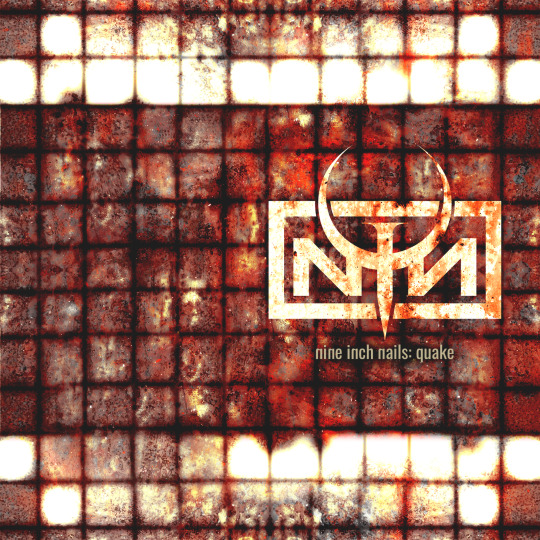
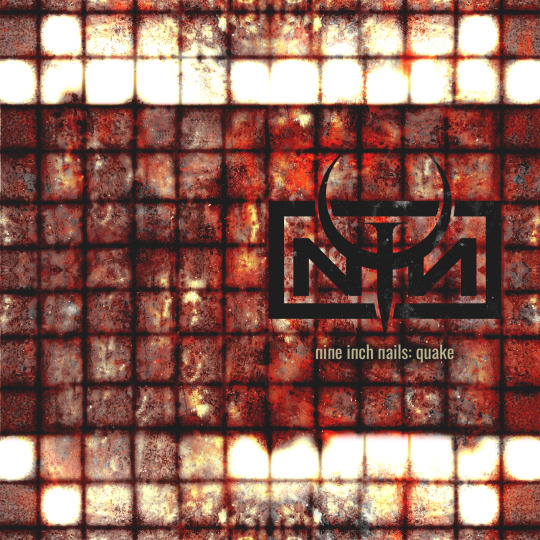

Downwards Spiral/Hesitation Marks inspired covers for the quake album
#Nine Inch Nails#nin#the downward spiral#hesitation marks#quake#Trent Reznor#Atticus Ross#industrial rock#album cover#art#graphic design#my art
380 notes
·
View notes
Text
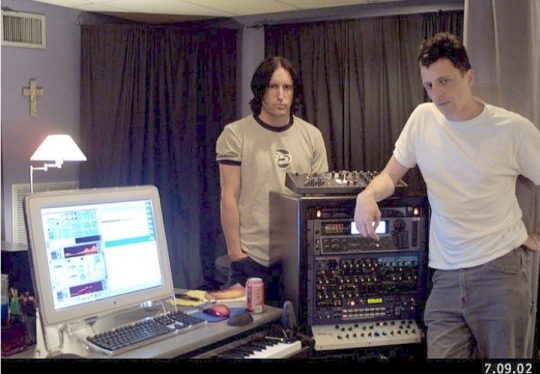
119 notes
·
View notes
Text
“You don’t think I’m a bad person?”
“All I think is that I love you.”

#bones and all#bones and all 2022#maren and lee#maren yearly#lee bones and all#trent reznor#atticus ross#luca guadagnino#timothee chalamet#taylor russell#mark rylance
524 notes
·
View notes